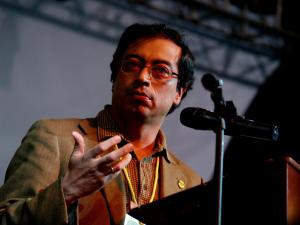North Dakota lawmakers have come up with a revenue and expense estimate if a marijuana legalization initiative passes, a Swedish labor court has ruled for employers in a drug testing case, and more.

DEA Sets Marijuana Rescheduling Hearing Date After the Election. The Drug Enforcement Administration (DEA) has scheduled a hearing on the Biden administration’s plan to reclassify marijuana, effectively delaying any decision on the move until after the November election.
President Joe Biden ordered a review of US marijuana policy in October 2022. In January 2024, the Department of Health and Human Services (DHS) examined the available evidence and determined that marijuana could be placed in a less restrictive schedule within the Controlled Substances Act. Three months later, the DEA indicated it would approve the rescheduling move, and now it has set a date for the hearing.
"This is a positive step forward for federal cannabis policy, however it is a rather modest step given the strong support among American voters for comprehensive cannabis reform," said Matthew Schweich, executive director of the cannabis policy reform group Marijuana Policy Project. "It is important to acknowledge that this rescheduling would not affect the criminalization of medical cannabis patients and cannabis consumers under state laws -- so we must continue the work of enacting sensible and fair cannabis legalization and medical cannabis laws through state legislatures and ballot initiatives."
North Dakota Lawmakers Approve Fiscal Note for Marijuana Legalization Initiative. A panel of the state legislature, North Dakota Legislative Management, met last Friday and, amid divisions, eventually estimated that the state would gain $10.3 million in revenue if the Question 5 marijuana legalization initiative passes in November.
The measure would legalize the possession of up to an ounce of marijuana by people 21 and over. The measure also legalizes the possession of up to four grams of concentrate and 1500 milligrams of "cannabinoid products," and allows for the home cultivation of up to three plants. It contains no provision for a legal marijuana marketplace.
The legislative revenue estimate assumes that the legislature will enact regulations to allow legal marijuana commerce, which would be taxed at 5 percent.
The panel also estimated there would be $8.3 million in expenses, including $4 million for saliva-testing equipment—which is not required by the language of the initiative. The panel also said there would be an "undetermined amount" of additional costs attributed to "behavioral health and social impacts."
International
Colombia's Marijuana Exports Expand as President Petro Presses Congress To Legalize Recreational Marijuana. President Gustavo Petro is once again calling on lawmakers to legalize marijuana. This would be the ninth attempt in the Congress; eight earlier efforts were blunted.
Petro's call comes as Colombia moves to enhance its position as a global leader in marijuana exports, now expanding its market reach to include 12 countries, including most recently, North Macedonia.
"We have now exported cannabis to 12 countries," Petro noted, before making a direct plea to lawmakers. "Congress can now take the step to legalization to take advantage of the global market and substantially improve the trade balance."
Petro also noted that legalization could lead to an improved security situation in parts of the country, such as Cauca, where illegal marijuana cultivation has sparked violence and territorial conflicts.
Swedish Labor Court Rules Against Worker Who Failed Drug Test. The Swedish Labor Court has ruled that a company that prevented a worker in a safety-sensitive position from working after he failed a drug test was justified, and that, thus, that worker is not eligible to be paid.
The court held that private sector workers must at least be available to perform work for the employer to retain a salary and that while available drug testing did not measure actual impairment, it was the best available measure of possible impairment. Employers can use the positive drug test result to forbid a worker from performing the job.
The court held that private employers can require random drug tests from workers when the work being performed by the employees is such that drug use may pose a risk to health and safety; when the employer’s business is particularly safety-sensitive; or when the employer must be able to show that its employees are drug-free due to the specific nature of the business.
This work by StoptheDrugWar.org is licensed under Creative Commons Attribution-ShareAlike 4.0 International
Add new comment